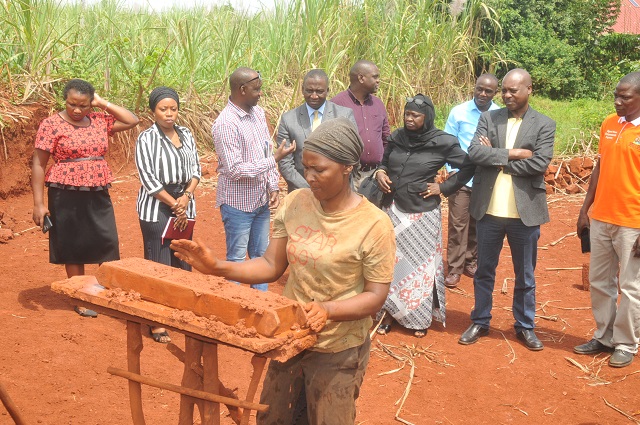
KAMPALA – A delegation from The Gambia has concluded a five-day visit to study the Uganda Women Entrepreneurship Programme (UWEP) and replicate it at home.
The delegation led by Mr Bulli Dibba, the permanent secretary in the Ministry of Women, Children and Social Welfare, comprised officials from the Gambian Central Bank, other ministries and government agencies.
They held several meetings with UWEP technical staff in Kampala and also visited selected beneficiary groups in Kibuku and Jinja districts for practical experience.
Mr Dibba said his ministry has just been created to economically empower women.
“Up to 52 per cent of the population in The Gambia are women although they remain excluded from the economic development of our country. They are not even captured in the Gross Domestic Product (GDP) figures,” he said.
He said The Gambian government and the European Union have set aside Euros 12.6m (about Shs46b) for the Women Enterprise Fund and it is critical to study similar programmes on women before implementation.
“This was a good learning visit. We realise we would have made a huge mistake to go ahead with implementation without this trip to study Uganda’s model. Our initial idea was to run the programme like a microfinance but we realise the social approach that UWEP takes is better if we are to help the most vulnerable women,” Mr Dibba noted.
Uganda’s Permanent Secretary of Ministry of Gender, Labour and Social Development, Mr James Ebitu said the visit by The Gambian team is proof that local interventions are receiving recognition beyond Uganda.
He implored The Gambians to eliminate barriers that stop rural women from accessing credit such as demand for collateral, high-interest rates and short repayment periods if their home programme is to succeed.
“The implementation criteria should be women-friendly and involve the participation of women and the communities in which they live,” Mr Ebitu noted.
UWEP has been implemented over the last four years and has financed 10,446 women projects across the country directly benefiting 130,258 women. The funds recovery currently stands at 77 per cent of the amount due.
The programme has created more than 110,000 direct jobs for women and 305,000 indirect ones.





